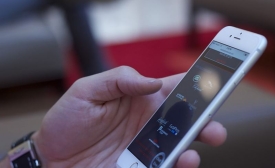sovereignty
Beijing today lodged a formal protest with the U.S. because President-elect Donald Trump, bypassing established diplomatic channels, spoke to Taiwan’s Tsai Ing-wen yesterday by telephone. [...] “During the discussion, they noted the close economic, political, and security ties exists between Taiwan and the United States,” notes the readout of the Trump transition team of the historic conversation.
This speech made history. No State of the Union address in the modern era makes the case more that America stands as strong and resilient as ever. (...) The State of the Union address shows not just Americans, but the entire world, that America is still an exceptional nation—one that believes in the rule “by the people for the people.” Mobs and factions can never take our sovereignty away from us.
European nations, Israel’s largest trading partners and a historical bastion of support, are taking stronger measures to support Palestinian sovereignty and condemn what many see as aggressive, expansionist Israeli policies.

Sarah Myers West, an alumna of the USC Masters of Public Diplomacy program, recently published an article in the Hague Journal of Diplomacy titled, "Redefining Digital Diplomacy: Modelling Business Diplomacy by Internet Companies in China"
Chinese President Xi Jinping stressed here Monday that the United States should honor its commitment to respect China's sovereignty and territorial integrity on the Taiwan and Tibet issues. At a meeting with his U.S. counterpart Barack Obama on the sidelines of a nuclear security summit slated for Monday and Tuesday, Xi said Washington should never support any activities aimed at separating China.
Pauline Marois and Philippe Couillard are both working to shift away from the battle over sovereignty and national unity as they head into a crucial pivot point for the Quebec election – the leaders’ debates. Mr. Couillard, the Liberal Leader, insisted Sunday he will not rush to seek recognition for Quebec’s “distinct character” after he earlier said he would seek support for a new constitutional deal from provincial premiers and federal party leaders.
When Hong Kong reverted to Chinese sovereignty in 1997, expectations were high—in Beijing and among the pro-mainland forces in Hong Kong—that identification with the Chinese nation would slowly but surely strengthen among the local population, especially among the younger generations, eventually solving the problem of Hong Kong’s full integration into China. Once the colonial education system ceased poisoning young minds, it was thought, future generations would embrace the worldview and politics favored in Beijing.







